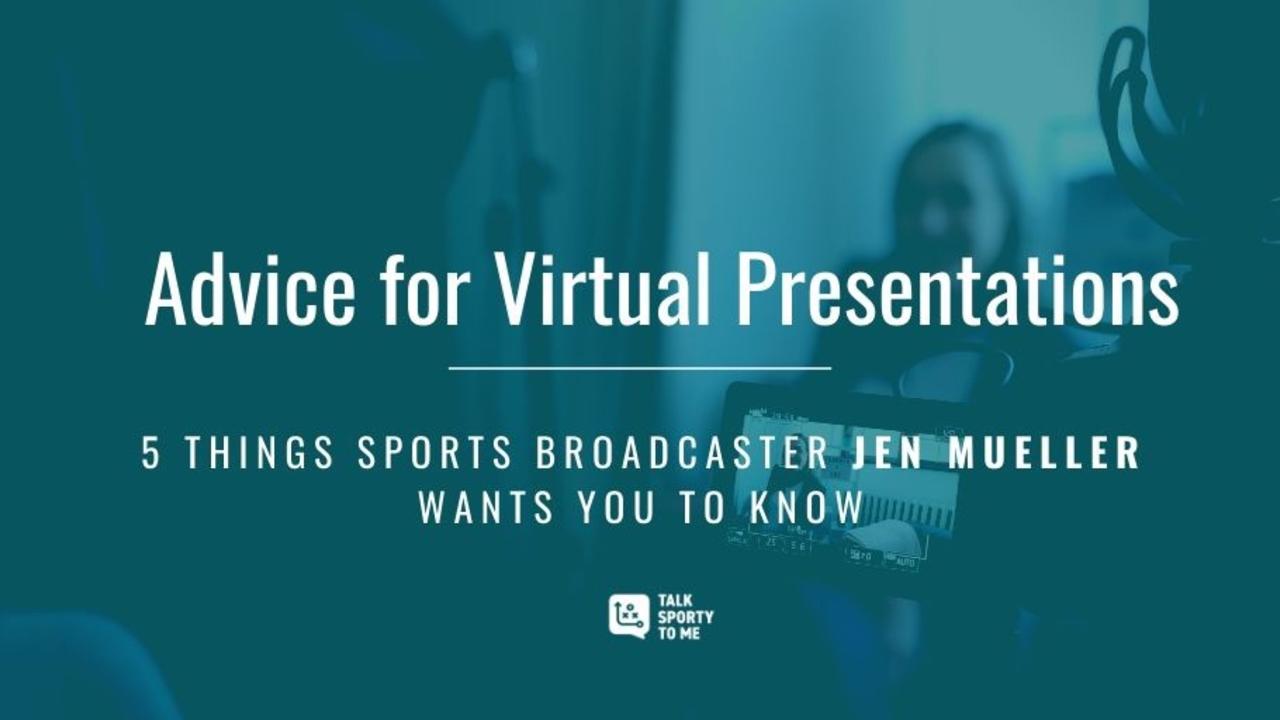I'M ONE TO TALK
Our Blog Posts will help you reach your full potential in becoming a confident conversationalist. New topics each week.
Camera Ready: A Broadcaster's Advice for Virtual Presentations

My ability to talk is a bit of a family joke and was well-documented by teachers who noted on every single report card that I had a tendency to “talk too much.”
Everyone agreed a job in sports broadcasting seemed like the perfect fit for me, but no one in my family believed me when I said I was exhausted after talking all day.
After all, what was so different about getting paid to do something I did naturally?
Here’s the difference: the camera.
Being on camera requires a different level of focus, energy and planning.
It’s part of the reason you’re Zoom’ed out, frustrated by having to dial into yet another meeting that seems like even more of a waste of time than usual and more exhausted by the end of the day despite not leaving the house. Certainly, the stress and uncertainty of during this pandemic are part of that dynamic but you should also acknowledge the stress of being on camera.
Virtual meetings, happy hours and interactions might be the next best thing to face-to-face i...
Communicating With Remote Teams: Master 3-Sentence Summaries

Better communication shouldn't be interpreted as longer emails or more meetings.
Be careful about extolling the values of "over-communication" with your remote team because longer emails and more meetings don't mean better communication.
You still need to communicate your message in a way the other person (or people on your team) hear and process the information. More often than not, it's shorter, bite-sized nuggets.
If you don't account for short attention spans and additional distractions that come with working from home, you're missing the mark with communication.
Here's a concept we frequently use during TV broadcasts - 3-sentence summaries. Take a look.
Communicating With Remote Teams: Ask focused questions

"How are you?"
In "normal" times it's the appropriate thing to say when starting a conversation and part of the script we follow by default.
These days, that question is asked with sincerity and best intentions, but I'm willing to wager the answers fall short of expectations.
If you really want people to open up, share their story and reveal personal details you have to ask a more focused question.
"How are you?" is the equivalent of me, a sports broadcaster, striking up a conversation with a player by saying, "Tell me about the game." I fully expect the athlete to look at me, shrug and then say, "What part of the game do you want me to tell you about? The beginning, the middle, the end, the role I played, the effort of my teammates, the adjustments we made because of the opponent?"
(If he or she doesn't do that, they're being far too polite, because that is a terribly unprepared way for a reporter to start a conversation with an athlete.)


